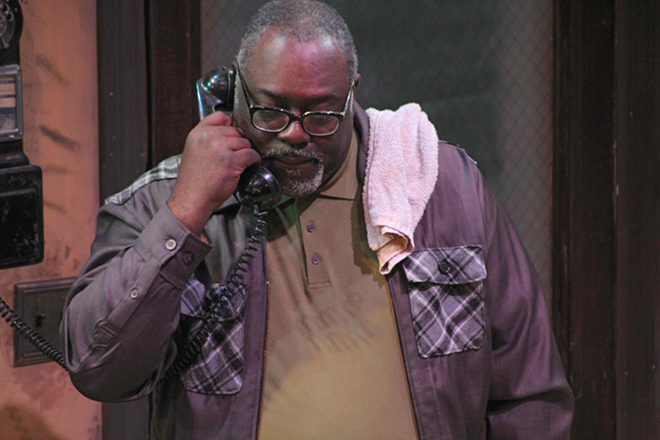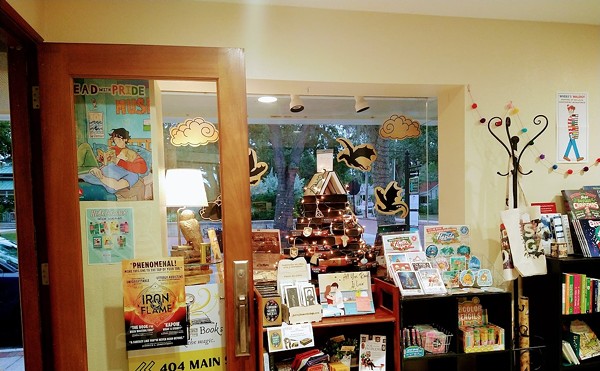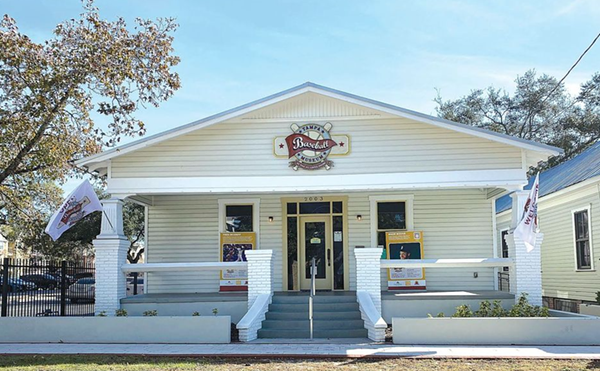
Sometimes the theater puts you in the presence of characters so captivating, you don’t want the experience to end. So it is with Jitney, August Wilson’s hugely likable play now on the boards at American Stage. The more we get acquainted with the eight men and one woman who show up from time to time at a Pittsburgh Hill District gypsy cab company, the centerpiece of this delectable drama, the more pleasure we take in their language, their humor, their idiosyncrasies and even their anger.
American Stage, 163 Third St. N., St. Petersburg , through Feb. 28. Wed.-Sat., 8 p.m., Sat.-Sun., 3 p.m. $39-$49. 727-823-PLAY. americanstage.org.
Deftly directed by L. Peter Callender, these nine figures are funny, admirable, dangerous, misunderstood, wounded, dreamstruck, decent and implacable. What drives them is what drives us all: the desire for love, work, dignity, peace. Some of them seem headed for a thinkably happy ending; others remain stalled in a tragedy with no solution. Some are just beginning to make a life for themselves; others are near the end of their journey. When it’s all over — when the last line is spoken and we’re compelled to leave the theater — we feel torn, bereft. Couldn’t everyone stay just a little while longer?
There’s not much plot to Jitney — and when characters are this fascinating, there’s doesn’t need to be. There are relationships and trajectories and conundrums. Insofar as a traditional narrative, it’s probably about the City of Pittsburgh’s threat to tear down the building from which the gypsy company operates. But Wilson doesn’t spend too much time on this peril, choosing instead to win our attention with beautifully drawn individuals caught in one or another sort of fact.
There’s Becker, the head of the cab company, played with maximum self-possession by Mujahid Abdul-Rashid. Becker is a straight arrow who doesn’t dither or equivocate, and who has nothing but resentment toward his son Booster (Adrian Roberts) who’s just been freed from prison after 20 years. Becker can’t forgive Booster’s crime, blames his son for throwing away a bright career, and refuses the younger man’s repeated efforts at reconciliation, even while displaying generosity toward everyone else.
Facing a happier problem are Youngblood (Satchel Andre) and Rena (Jazmine Pierce), who have a 2-year-old son and who may or may not be in the midst of a lovers’ crisis. Youngblood, a Vietnam vet, is trying to buy a house for his small family, but Rena is convinced Youngblood’s been cheating on her with her sister, Peaches. Adding to Rena’s fears are certain malicious comments by Turnbo, played brilliantly by Kim Sullivan, a busybody and chatterbox who brings us much of the play’s humor. Working with Turbo is Fielding, poignantly portrayed by Ron Bobb-Semple, an older alcoholic who knows the bottle has stolen much of his joy, but who still can’t give it up for more than a few hours at a time.
Other denizens of the cab office include honorable gypsy driver Doub, played impeccably by the effervescent “ranney”; numbers runner Shealy, the ostentatious Aaron Washington (catch those red trousers and platform heels, designed by Frank Chavez); and hotel worker Philmore, impersonated capably by Josh Goff.
When we first meet these personages, their comings and goings seem random, but the more we become acquainted with the workings of the cab company, the more we feel the sense and rhythm of their transits. The action takes place on Scott Cooper’s spacious set, featuring tired furniture, dirt-streaked windows, and a battered linoleum floor missing some tiles. Calls for the drivers come in on a payphone hanging on a wall.
There is one notable flaw in this otherwise wonderful play: The ending, though climactic enough, doesn’t grow organically from the action preceding it. Perhaps Wilson didn’t trust his audience to accept a finish as unfinished as so many of these stories need to be, so he bowed to what must have seemed a formal requirement.
Even so, Jitney remains a superb argument for the power of art — when in the hands of a few geniuses — to illuminate the human condition with extraordinary language, psychology, and sympathy. I recommend it to anyone ready to be thrilled by the live theater at its most incisive.
Local Hero: Supporters of local scribes, take note – Bay area playwright Robert Lipkin’s drama Sweeter than Justice will be presented as a staged reading at the Glenridge Performing Arts Center, 7333 Scotland Way, Sarasota, at 7:30 p.m. on Friday and Saturday Feb. 5 and 6. 941-552-5325 or PageToStageProductions.com.
















